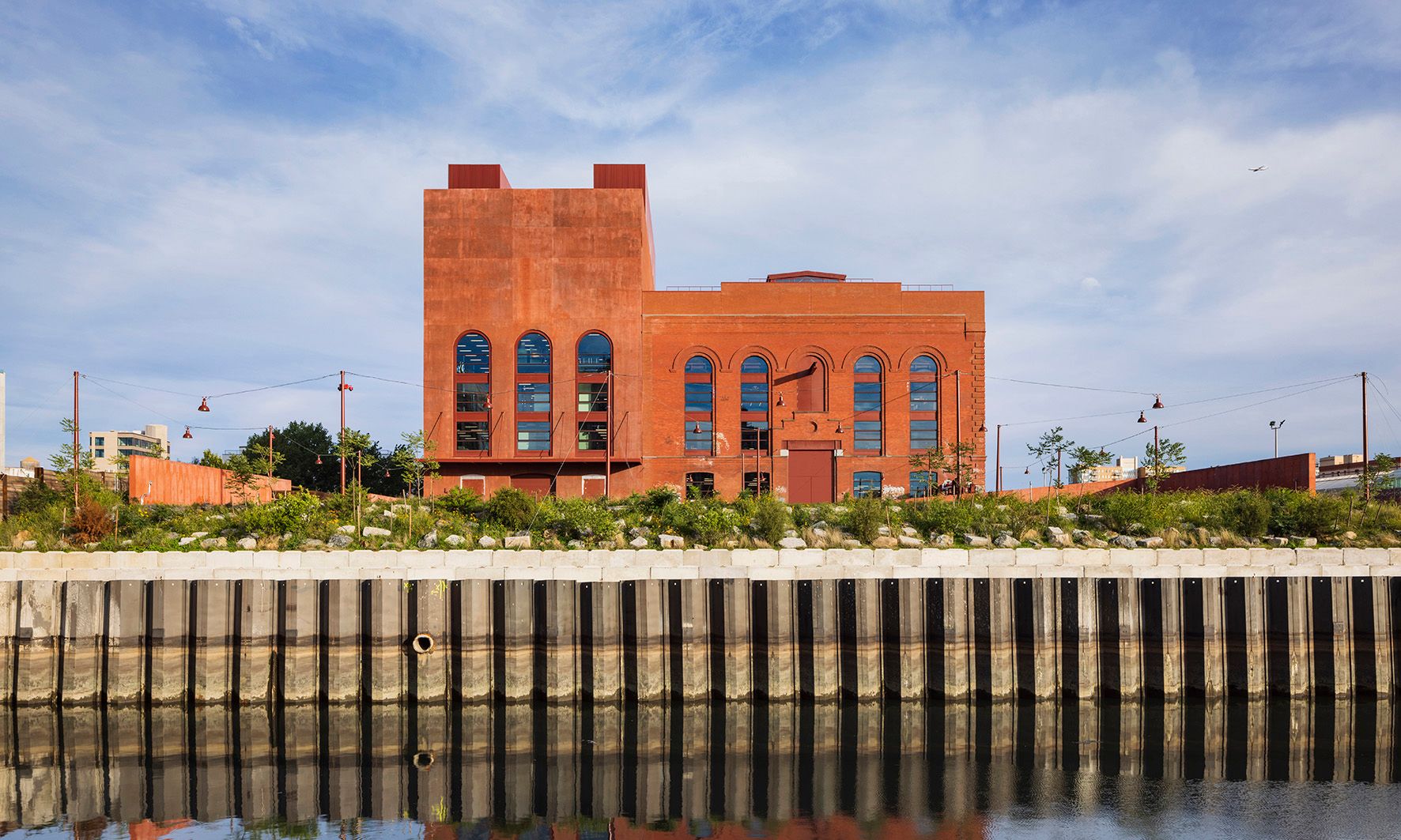The former power station has been revamped by Herzog & de Meuron and PBDW Architects © Albert Vecerka/Esto
New York’s decade-long real estate boom has made affordable studio spaces and fabrication services very hard to come by but, against the odds, a new art production facility has come online in one of the city’s most rapidly gentrifying neighbourhoods.
Powerhouse Arts has transformed a former transit power station on the banks of the Gowanus Canal—one of the most polluted waterways in the US—that was abandoned for decades into a 170,000 sq. ft complex with printmaking, ceramics and public art fabrication. Still to come are textile and metalwork shops.
Inside Powerhouse Arts Albert Vecerka/ESTO
“In a city like New York, to have this amount of space to create makes this complex a unicorn,” Laurie Cumbo, the commissioner of New York’s Department of Cultural Affairs, said at a ribbon-cutting event on 19 May.
The project has been funded by donations totalling $180m from philanthropist Joshua Rechnitz, who reportedly paid $7m for the building—affectionately known to locals as "the batcave"—in 2012. In the years since, architects from Swiss firm Herzog & de Meuron and New York-based PBDW Architects designed a top-to-bottom overhaul of the complex, all the while preserving its photogenic, graffiti-filled main hall as a space for events and performances.
The grand hall and loft on the third floor of Powerhouse Arts Albert Vecerka/ESTO
On the occasion of Powerhouse Arts' grand opening celebration on 19 May, that main hall hosted Truth (2023), a new durational performance piece by artist Miles Greenberg. In addition to the preserved graffiti on the grand space's walls is a new commission, Flying Home (2023), by the artist Ellery Neon, who once lived in the building when it housed a thriving squatter community. One level below, a smaller space is hosting Hive Mind, an exhibition of works by staff members.
Ellery Neon, Flying Home, 2023 Courtesy of Powerhouse Arts
A community ceramics studio offers monthly memberships, while the public art fabrication studio teams with artists and organisations to help realise large-scale projects including for Pamela Rosenkranz’s recent commission for the High Line park and Charles Gaines’s large outdoor installation on Governors Island.
“I see this as a new version of Warhol’s factory,” says Eric Shiner, the president of Powerhouse Arts, who was previously the director for the Andy Warhol Museum in Pittsburgh. “We want artists at every level to use this space as a launchpad.”

